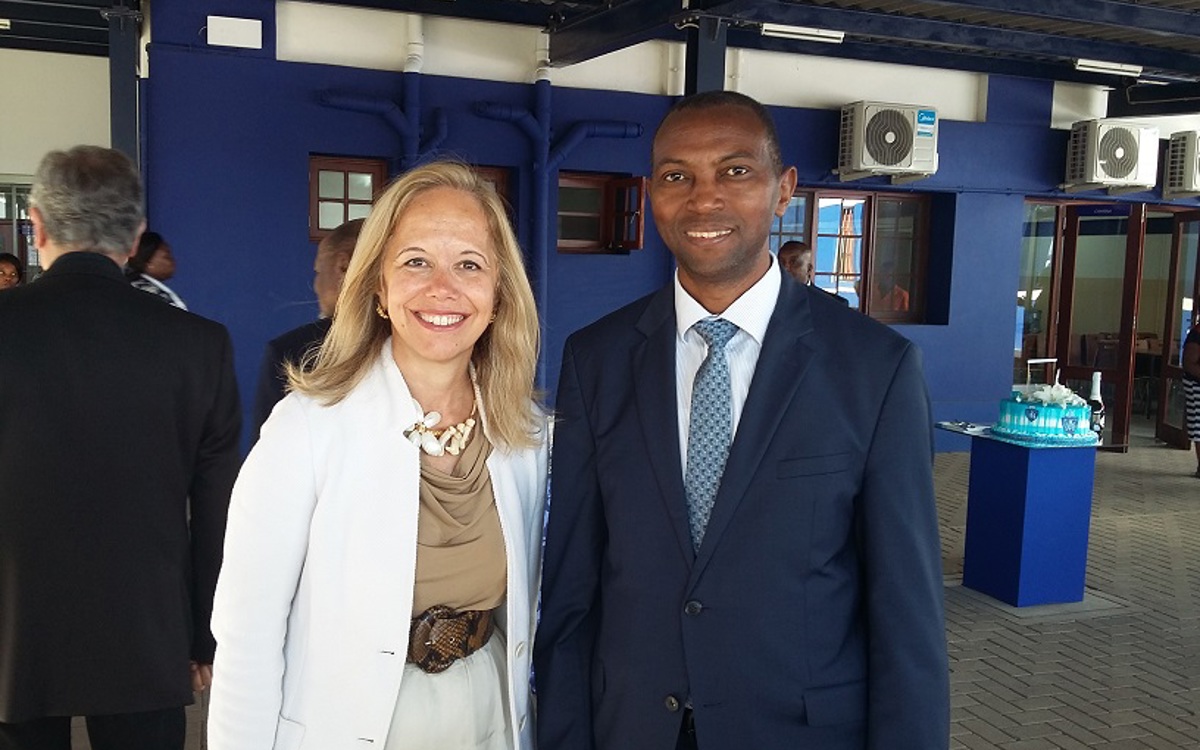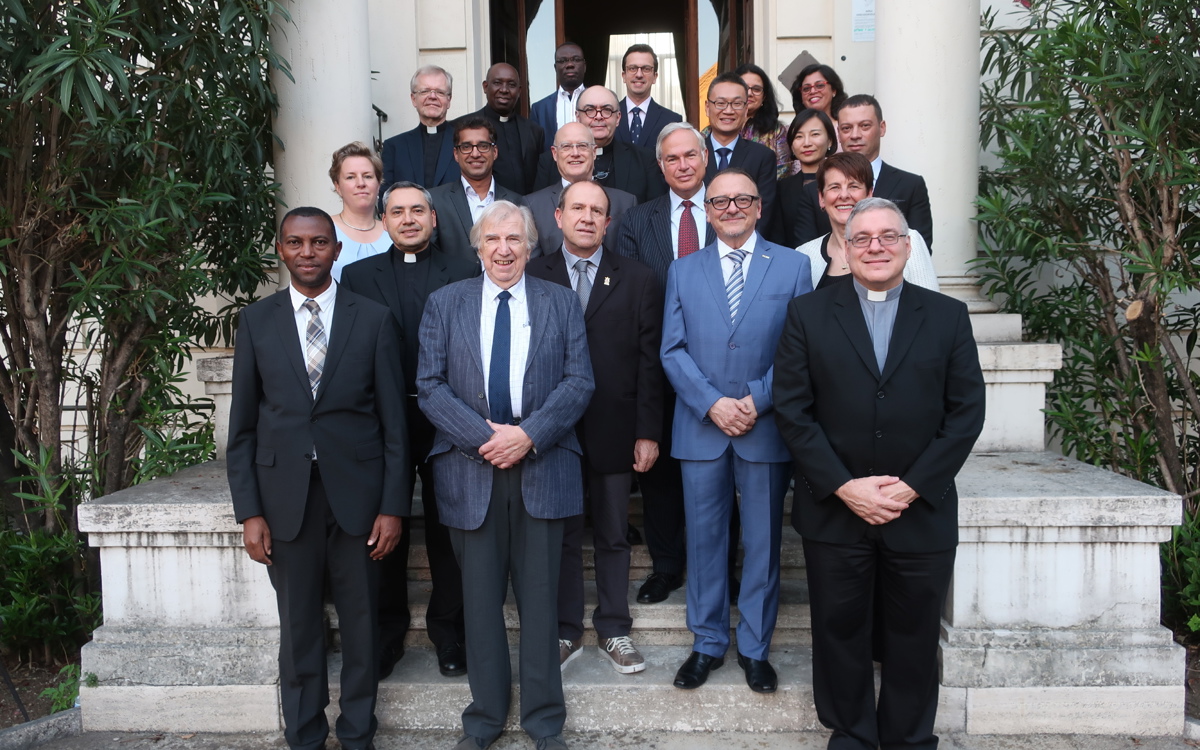By Dr George Mutalemwa

Peace is a precursor and a condition for sustainable development.

According to a 2018 UN and World Bank Group report, it is estimated that by 2030 more than half the world’s poor will be living in countries affected by high levels of violence. The 2030 Agenda for Sustainable Development adopted by the United Nations General Assembly in 2015, recognises that peace is key to sustainable development and vice versa. Sustainable Development Goal (SDG) 16 seeks to promote ‘just, peaceful and inclusive societies’.
Dr George Mutalemwa, a Senior lecturer in Development Studies from St Augustine University of Tanzania, was awarded an ACU Peace & Reconciliation Fellowship in 2019. The fellowship brought him to the Catholic University of Eastern Africa (CUEA), Kenya, for collaborative work focused on mainstreaming peace and reconciliation studies among catholic higher education institutions in Africa.
Dr Mutalemwa’s research was a response to a resolution passed in 2017 by the Association of Catholic Universities and Higher Institutes of Africa and Madagascar (ACUHIAM) calling for member universities to have a department of peace studies.
The idea to establish peace programmes in Africa has been discussed for over a decade. In 2010, the Bujumbura Declaration required institutions to engage in capacity building on peace, conflict resolution and reconciliation. In March 2011, the ACUHIAM Scientific Committee approved a proposal for Institutes on Peace and Justice Programme Development in the Great Lakes Region. In 2012, the ACUHIAM General Assembly approved a resolution that called on all members to report to the Scientific Committee on their progress.
Describing the scope of his research project, Dr Mutalemwa’s explained: ‘The basic question is what has been achieved so far, but also to show why this has been the case and therefore what is the way forward. Ultimately, peacebuilding entails knowledge, values, skills and the commitment to do so. This is not only relevant for individual universities or the Catholic church but for the entire world which is challenged by violence, conflicts and wars.’
Through his research, Dr Mutalemwa makes a clear connection between peace and development: ‘If you look at countries that are warring and have conflict, you find that their levels of development, especially social and economic development are quite low. For example, The Democratic Republic of Congo (DRC) is known to be a very rich country in terms of natural resources, but there is a disconnect between the development and the resources that are there. This also applies to similar countries in Africa.’
During the fellowship, the work carried out included a review of documents of the ACUHIAM, and searches to identify universities in Africa which offer peace studies and the levels at which peace is taught. He carried out 400 interviews with students as well as numerous expert interviews with academics at St. Augustine University of Tanzania, Centre for Justice and Ethics at the Catholic University of Eastern Africa in Nairobi, Tangaza University College and the Hekima Institute for Peace and International Relations, also in Nairobi. Although the COVID-19 lockdown in Kenya curtailed his research visit, the study continued remotely in Tanzania with data analysis and interpretation.
Throughout the fellowship, Dr Mutalemwa also participated in two major events including an international Symposium on the Church in Africa, an evaluation of the document Ecclesia in Africa as well as an international workshop on Peace and Religion both at Tangaza University College in Nairobi.
As a result of his work, Dr Mutalemwa has developed curriculum guidelines and salient topics to be included in peace programmes and courses in Africa. His research will therefore act as focal point to which academics in Africa can refer to when developing context-specific peace programmes and thus help towards the intellectual and cultural formation of young people as future global peace promoters.
Reflecting on the high points of the fellowship, Dr Mutalemwa commented: ‘The high points and successes include the production of a publishable article on Peace Studies in Africa as well as the beginning of a book manuscript on the same. Overall, the fellowship enabled me to work on the theme that I made my priority as Executive Secretary of the Association of Catholic Universities and Higher Institutes of Africa and Madagascar since 2017.’
He added: ‘The fellowship enabled me to broaden networks with people working in the field of peace studies both within the ACUHIAM and outside the association including the Centre for Peace Network in the United States and, of course, the ACU. The fellowship was essential in cementing ties with my host institution, the CUEA.’

More information
In 2019 the Association of Commonwealth Universities (ACU) launched two new Peace and Reconciliation Fellowships, designed to facilitate collaboration and support the role of universities in truth-telling and reconciliation in their communities and beyond.
Each fellowship offers funding enabling staff from ACU member universities to travel to another ACU member overseas for a period of research or collaboration, linked to the aims of the Commonwealth Peace and Reconciliation network. These fellowships support staff engaged in research, institutional reform and those developing new approaches to teaching and learning in the areas of decolonisation, human rights, indigenous studies, peace and post-conflict studies, reconciliation and transformative justice.
This year, the ACU Peace and Reconciliation Fellowships will be replaced by a new Commonwealth Peace and Reconciliation Challenge Grants. Open to professional and academic staff at ACU member universities, the Challenge Grants support collaborative work focused on the Commonwealth Peace and Reconciliation Network priority themes. Applications open in December 2020. Visit this page to find out more.
Image (top): Dr. George Mutalemwa, Executive Secretary of ACUHIAM and Prof. Isabel Capeloa Gil, President of the International Federation of Catholic Universities (IFCU) during the inauguration of the Catholic University of Mozambique in Maputo in 2019.
